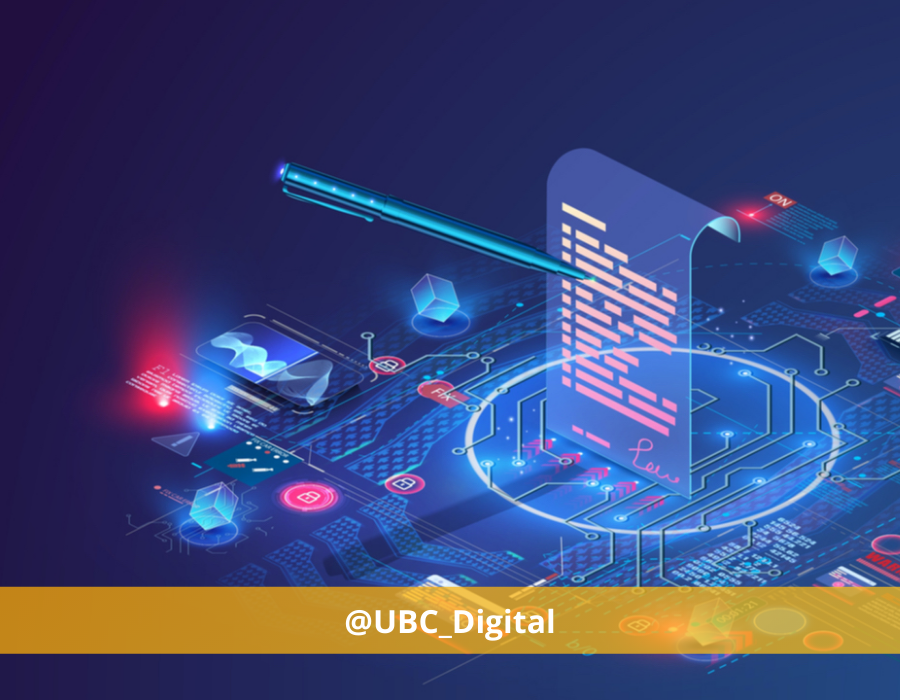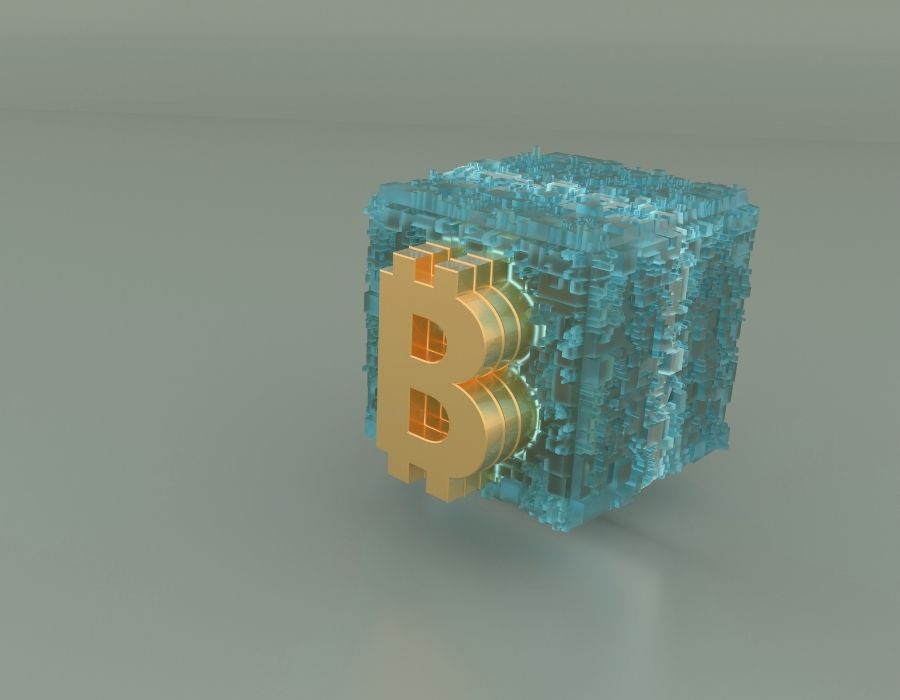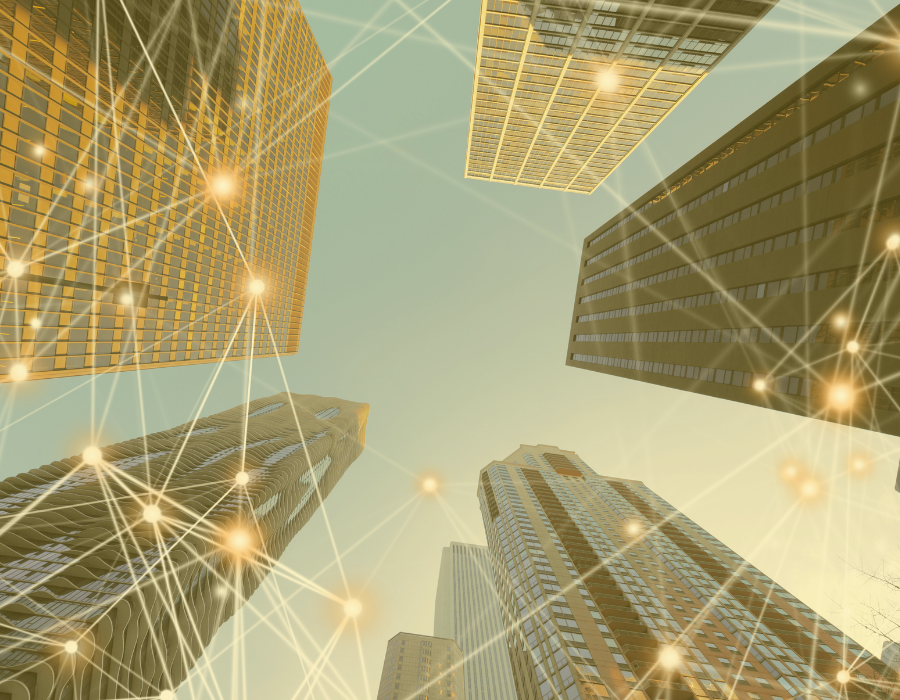Interactions that take place in a daily routine are often the result of some sort of agreement(s). Take a social agreement which concerns you and your neighbour ; or a financial agreement which concerns you and an online retail platform from which you bought a product ; or a legal agreement which concerns you and your employee. Today we’ll look at 22 smart contracts to watch in 2023.
It is these agreements that enable interactions between humans and makes them smoother than the usual robot-conversations you may have faced during a customer support process. Today, we’ll hypothetically map human- and organisational processes to their digital counterparty.
Let us take you on a journey through a digitised society – of course, with your privacy, ownership and rights – always in mind. A society, that is not run by computers, much rather a society that is enabled by computers.
Table of contents
- Smart contracts for financial agreements
- Smart contracts for legal agreements
- Smart contracts for distributed organisations (DAOs)
- Smart contracts for Internet-of-Things (IoT)
- Smart contracts for data mining
- Smart contracts for logistics processes
- Smart contracts for virtual reality
- Conclusion
Smart contracts for financial agreements
A first sector or industry that may take profit of using smart contracts and blockchain technology is obviously the financial sector. This section illustrates and explains some smart contracts to watch in 2023 that are related with financial agreements.
Initial distribution offering
A group of investors proposes to fund a business project idea. The funds shall be spendable by the team with a minimum of 3 members that must agree for any operation using said funds.
An IDO, short for initial distribution offering, may be an alternative to fundraising for some and offer some potential to build a fully transparent treasury management for operations that are executed with the funds.
Funds escrow
Alice and Bob want to exchange- / swap- / trade tokens directly on-chain. The funds sent by Alice to Bob shall be spendable by Bob only when the transaction is confirmed. This also applies to Alice. An escrow ensures that neither Alice, nor Bob, can run with the funds ; and functions as a safeguard for scammers.
A typical situation of our lives that functions with an escrow is the purchase of a house, where a notary acts between the buyer and the seller in a role of moral guardian. This represents an escrow situation – except that digitally, the notary would be auditable and totally transparent.
Loan syndication
A group of lenders collaborate to provide the required capital to a single larger borrower. The funds sent by the lenders are spendable by the borrower upon transaction confirmation.
Some projects may require very large funds and hence to spread risks, banks and financial institutions come together to provide funds for such projects. Hence, syndicate loan offers the benefit to lenders to spread risk and together take part in the project that could have turned out to be too large for them as an individual lender. Generally, syndicate loans are offered at adjusted rates.
Financial security
Blockchain technology produces a structure of data with inherent security qualities. It’s based on principles of cryptography, decentralization and consensus, which ensure trust in transactions.
Source: IBM
Bitcoin and blockchain technology offer a variety security characteristics through their use of peer-to-peer technologies and cryptography for securing data and signatures thereof. While a peer-to-peer data storage enables the distribution- and augments redundancy of- data, cryptography- on the other hand, enables highly secure ownership systems to be built.
Derivatives
The derivatives market has seen a lot of interest in the past year, with products ranging from stablecoins to tokenised assets. Indeed, smart contracts can be used to create and execute derivative contracts such as options or futures contracts that can be found also on the legacy market.
These contracts can be used to automatically execute options trading given certain conditions are met, eliminating the need for intermediaries like banks or notaries.
Smart contracts for legal agreements
There is opportunities in the sector of legal agreements as well, as the currently ongoing digital transformation of our society moves forward. Below are more smart contracts to watch in 2023 that are related to legal processes and agreements.
Mortgage
A property owner must determine the exact and immutable digital shape of a property. Automated legal documents can be created as part of a distributed software that uses blockchain. Using blockchain technology in this context can eliminate mediation fees or malicious mediators.
A mortgage is a loan – provided by a mortgage lender or a bank – that enables an individual to purchase a home or property. As such, it’s possible to take out loans to cover the entire cost of a home and pay back the loan over time. The property actually acts as collateral on the loaned amount that an individual is lent to purchase the property.
Policy making
Example: Technology is applied to deliver driver reports automatically and thereby facilitate policy making related to the use of motorised vehicles. Notable here is that blockchain technology is highly efficient, and transparent, at governance and decision making use cases.
As for public policy making, there is potential for blockchain technology to be integrated in augmenting the access to policies and related data.
Intellectual property protection
A customer that buys a product can easily verify that the product is authentic and that it is not counterfeit. Using blockchain accounts and elliptic curve cryptography, it is quite simple to provide either of proofs of authenticity for data and proofs of ownership.
In other words, when I publish a new software package, I can cryptographically sign the software and anchor the result using a blockchain network, such that: 1. the integrity of said data can be guaranteed and verified easily ; 2. it is a verifiable fact, that I am the owner of the software package ; 3. it is possible for me to publicly display my authorship of this software package.
Smart contracts for distributed organisations (DAOs)
One area that many people have heard about is that of distributed organisations. These are entire businesses or parts- and divisions of companies that run transparently and autonomously with blockchain. Below is a list of smart contracts to watch in 2023 that are related to distributed organisations.
Governance and dispute resolution
Collaborators of a business are given access to manage token issuance and/or govern the operational aspects of accounts owned- or products manufactured by the business.
Smart contracts can be used to manage the governance of a DAO, such as for example to distribute the creation and modification of rules and procedures that affect operational aspects or accounts owned by a business. The contracts can be used to ensure that all members of the DAO have an equal say in decision-making but could also be used for resolving disputes, and can automatically execute the resolution once a decision has been made.
Voting and decision making
Voting processes can be automated for decision-making within a DAO. The smart contract(s) can be used to verify the identity of voters and count the votes, making the process more secure and transparent.
Tokenization and digital transformation
With digital transformation being one of the hottest topics in the previous year, it is only normal that they still find their way onto our compilation of smart contracts to watch.
Smart contracts can be used to tokenize assets such as real estate or intellectual property, and then to distribute ownership to members of a DAO. A smart contract would be used here to automatically transfer ownership of the tokens and potentially distribute profits or dividends to token holders on a yearly basis.
Smart contracts for Internet-of-Things (IoT)
Also the IoT sector may take profit of a more transparent and automated process definition. In this section we’ll explain some smart contracts to watch in 2023 that are related to IoT and connected devices.
Supply chain management
Smart contracts can be used to track the movement of goods through the supply chain. For example, a smart contract could be used to monitor the temperature of perishable goods during transit and automatically release payment to the supplier once the goods have been delivered in the correct condition.
Multiple solutions have been worked on in this industry already with few interoperability as of right now. There is room for new standards definition in this area, for example to provide a suitable process for connected devices to determine (or verify) that the goods have been delivered in correct conditions.
Energy efficiency
Another smart use of blockchain would involve smart contracts that are used to manage energy consumption and production within a building or community such as to reach better efficiency levels or reduce waste. An example of this would be a smart contract that is used to automatically adjust the temperature of a building depending on its occupancy – wether it is currently in use or not -, and thereby reducing energy waste and optimizing costs.
We improve the efficiency by reducing waste and augmenting the transparency around actual energy production or usage. Sensors and cameras can typically be used to detect the presence of humans in a room and act accordingly.
Autonomous vehicles
In latest years, we have seen autonomous vehicles start driving on our streets, we think that it would make sense for some processes in that space to use blockchain and smart contracts to manage their operation. Self-driving cars can’t always take the correct decisions, right? That is why the infrastructure would benefit of an open protocol like blockchain, which is secure and goes by predefined rules for changes in the network.
The use case consists in a smart contract that is used to automatically pay tolls and parking fees, and to monitor the condition of the vehicle such as to schedule maintenance in a timely manner.
Agriculture
Cultivation and harvesting is another area in which the digital transformation is still very present. After all, many farmers would like to optimize their crop growth and potentially make use of blockchain to improve nutrient levels or monitor moisture in crops.
Smart contracts can be used to manage the cultivation and harvesting of said crops. Most commonly, a smart contract can be used to monitor the moisture and nutrient levels of soil and to automatically release fertilizer and water such as to optimize crop growth.
Smart contracts for data mining
We think that “data” is going to be in the center of focus for 2023. This is not only because of privacy regulations, but also because customers are starting to realize that data is valuable and that they should take care of their own data. In this section we’ll explain some smart contracts to watch in 2023 that are related to data mining.
Data sharing
With the advent of privacy regulations and improved knowledge of customers about data that they share, we think that smart contracts can be used to create a secure- and transparent process for sharing data between different parties.
For this use case, a smart contract must be developed that permits to share data between institutions, researchers, or end-users directly. This sharing process must also ensure that the data is only ever shared with authorized parties and also that it is used for its intended purpose.
Sharing is caring, isn’t it? Our advise about data sharing is that you must be careful with whom you share your data.
Digital identity
You have probably heard about smart accounts, which are trendy this week. These accounts give you a digital identity that is entirely and publicly verifiable. This does not mean that your data is available publicly tho, it just means that you can prove to be the owner of the account, without revealing extra information.
Blockchain and smart contracts can be used to create and manage digital identities, which help to authenticate users or authorize access to data or parts of data. There is already some example implementations out there, where smart contracts are used to create digital identities for patient, and permit to securely share medical records with authorized parties and institutions.
This is in parts being worked on at dHealth Network has been working on with its dApps Framework.
Data exchange and marketplaces
After having discussed the sharing of data and the attribution of it to digital identities, next down the line are data marketplaces which would allow customers to sell parts of their data to others and thereby take profit from their data directly or upon use. This particularly interesting in the healthcare industry where processes are very opaque and usually do not let a customer have a say about their data.
Such data marketplaces can be created on top of blockchain networks using smart contracts to allow users to buy and sell data without the need for intermediaries and to then take benefit of any dataset they would save on the platform. Our team at UBC have worked on some of these upcoming data marketplaces and we are available to discuss this and the challenges involved in detail during a consultation.

Smart contracts for logistics processes
We have seen last year some shortages in the technology industry with chip manufacturers not being able to ship their products to some countries anymore (China) – or taking much more time to do so. This industry would benefit of an overhaul with the below ideas implemented.
Freight tracking
In a supply chain, there will typically be more than one participant involved and it is somewhat complicated to impose rules and standards for the verification of packages in transit across multiple companies. Therefore we think that blockchain would be helpful because it would set the ground rules digitally and it could potentially automate some of the verifications done along the shipment steps.
Typically, smart contracts are used to track shipments and to provide real-time updates on the location and condition of goods in transit. This can be done using sensors and GPS devices attached to the cargo. The smart contract can then trigger automatic alerts and notifications to relevant parties if the shipment deviates from the planned route or if there are any delays.
We have described this type of supply chain improvement in a previous article: how to use blockchain to tokenise your supply chain.
Asset tracking
We previously mentioned in the smart contracts to watch in 2023 that blockchain can be used with autonomous vehicles. We think that this can be extrapolated a little such that the use case covers vehicles generally.
In fact, blockchain and smart contracts could be used to track the location and assess the condition of assets that belong to your company. This includes vehicles, trailers or even cargo containers. For logistics companies, this use case can have an impact on their asset utilization and could also prevent theft and loss of these assets.
Smart contracts for virtual reality
By now, the biggest players like Facebook and Amazon, have long entered the Metaverse. We doubt that these companies will ensure that customers are made owners of whatever is created in a virtual reality environment. In fact, it is more likely that these companies will profit directly from user’ data and this is the reason why we think that blockchain and smart contracts must be added to the equation.
Virtual real estate
With the metaverse in all mouths, real estate has started to take shape on platforms like Decentraland, amongst others. These platforms usually use blockchain wallets to authenticate users and we think that the experience can be improved by enabling users to create and manage, or “build”, their own real estate in virtual reality environments.
Blockchain protocols, under the hood, would allow to establish- or transfer ownership and allow to define rules and regulations for the use of virtual land as created by the end-user.
Virtual marketplaces
The marketplace aspects of virtual reality environments cannot be ignored anymore, with one of the giant companies, Prada, entering the space last year as we reported in our industry news. Now will be the time to make these marketplaces accessible to customers. Would you go shopping in a virtual retail store? Let us know in the comments!
Also here, blockchain and smart contracts are helpful because the technology can facilitate transactions between buyers and sellers of virtual goods and services, ensuring secure and transparent transactions.
Conclusion
Blockchain technology still has a lot of potential, also in 2023. When we examine the tremendous changes that blockchain is bringing to every industry it touches, in 2023 and beyond, the future of blockchain appears to be promising. It will be much more intriguing to see where blockchain technology goes in the future in terms of banking, money transfers, decentralized marketplaces, data privacy and more.
Are you missing an example of smart contract in the compiled list above? Feel free to tell us in the comments section.



We hope that this article was insightful for you and are looking forward to any feedback and messages. Please share your thoughts in the comments section below!
Disclaimer
This website may contain information about financial firms, employees of such firms, and/or their products and services such as real estate, stocks, bonds, and other types of investments. While this website may intend - as the author deem necessary - to provide information on financial matters and investments, such information or references should not be construed or interpreted as investment advice or viewed as an endorsement.



